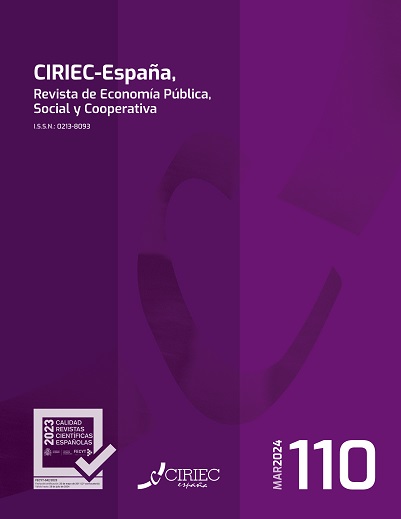Nonprofit organizationsbusiness co-creation as a consequence of relational norms: Can improve it with a business-like approach?
DOI:
https://doi.org/10.7203/CIRIEC-E.110.26173 Abstract
Abstract
Co-creation has emerged as an outstanding issue in today’s society. Mainly, research efforts have been conducted in business literature (particularly, following the service-dominant logic approach). However, there is a lack of theoretical and empirical studies that analyze value co-creation from the non-profit’s point of view; and, in particular, the strategy of value co-creation in collaborative relationships between non-profit organizations and companies is an under-researched topic. From the theory of psychological contracts, relational norms are considered a mechanism that promotes co-creation processes. Furthermore, the non-profit organizations have been increasingly becoming more business-like (through market orientation, venture philanthropy, corporate governance structure, entrepreneurial behavior, and professionalization) to improve the impact achieved with the development of their activities. Combining a thorough literature revision and a quantitative-based research with 205 nonprofits, The study attempts to identify to what extent the establishment of relational norms between NPOs and companies in their co-creation relationships is really conditioned by the business-like factors of the NPOs. Several implications are derived for non-profit managers, which will help them implement effective management strategies in their relationships
with companies.
 Downloads
Downloads
Downloads
Published
How to Cite
-
Abstract202
-
PDF85
Issue
Section
License
The authors of the articles accepted must renounce to the copyright ot its Spanish / English version and authorize the review to publish their articles on its Web page as well as reproduced them in different scientific data base, as established by law. Authors can deposit their article in their own personal and institutional sites.



